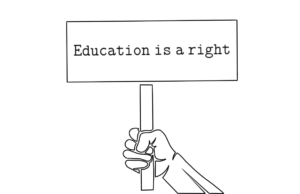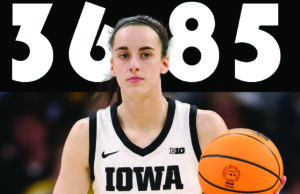NCAA Rule Changes

The National Collegiate Athletic Association (NCAA) has made significant changes to their recruitment processes, eligibility standards, and gameplay rules this year. These changes address areas from SAT and ACT scores to social media.
In past years, a 2.0 GPA was required to be eligible to play sports for athletic scholarships, but an electronic statement released by the NCAA says that as of August 1, 2016, the standard is a 2.3 GPA. Also 10 core courses are required to be completed before senior year and higher SAT and ACT scores are needed. The lower GPA that a student has, the higher SAT score they have to achieve, and the higher GPA they have, the lower SAT score they have to achieve.
“I think the recent changes are necessary…I believe that these changes will make upcoming athletes more inclined to work harder for school,” said Ethan Duffy, a senior on the varsity cross country and track and field teams.
“These changes were made in order to assure that the athletes attending universities were well rounded and likely to succeed in a competitive, college environment both on and off the field,” said Jack Smith, a senior on the water polo team.
In regards to individual sports, the regulations have been altered as well. The rules on low-blocking in football do not allow a player to block an opponent below the waist towards the original position of the ball unless the ball carrier has clearly crossed the line of scrimmage. An instant replay rule was put in place allowing a medical observer to stop the game if a player gets injured. In addition, the regular season replay rule allows umpires to use an instant replay to make tough calls for baseball.
“I like it actually. You want to make [the call] right,” said Curtis Scott, the varsity baseball coach. “But sometimes it takes too long so I think there should be a time limit to follow.”
Additionally, coaches and staff members for college teams are now allowed to retweet, like, or favorite athletes’ posts on social media. This is a major step since in past years, coaches were to act like players didn’t even exist on public social media.
“I’m not really in favor of using social media to find out about student athletes. I know it’s used but I think students need to be aware of what they do post on social media because it’s very important and colleges do look at it,” Scott said.
Although most fans and some athletes won’t even recognize the changes, they still are a significant leap from past years.



